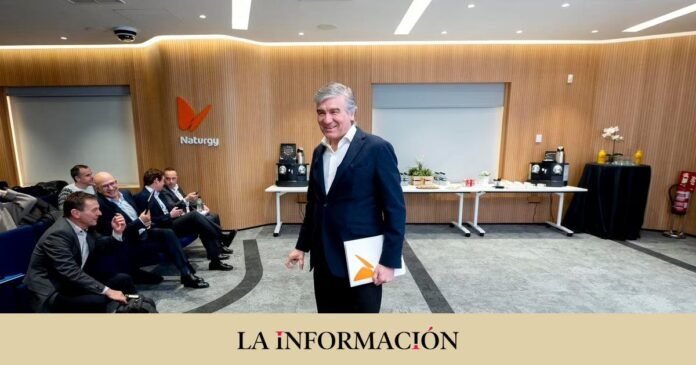The loss of power of small shareholders in Naturgy after the IFM acquisition offer, and the increase in Criteria’s participation, could hide a certain discontent towards some of the proposals that will be voted on Tuesday at the funds’ energy meeting present in the capital. The main voting advisors have recommended taking a position against several items on the agenda. Thus, Glass Lewis and the Institutional Shareholder Service (ISS) advise voting against the re-election of Pedro Sainz de Baranda Riva and the remuneration report. The second, which is the largest attorney in the world, also opted to oppose the re-election of Francisco Reynés as president and counselor and that of José Antonio Torre de Silva López de Letona. And Glass Lewis, for his part, does not support shortening the term to convene an extraordinary shareholders’ meeting to 15 days.
ISS’s argument for distancing itself from supporting a new mandate for Reynés is linked to the concentration of powers in the hands of the executive. In this sense, ISS explains that its opposition is justified by the fact that the re-election is not limited to an interim period since the company “has not revealed any plan to separate the positions of CEO and president in the short term”, it points out in its report facing the board Glass Lewis, however, advises the funds to support Reynés’s continuity in his position. Regarding the rejection of the continuity of Sainz de Baranda, the ‘proxies’ justify it in the low representation of women on the council, which is 25% compared to the 40% recommended by the CNMV’s Good Governance Code for this year; something that was already a reason for opposition last year. ISS also advises the funds not to support the appointment of José Antonio Torre de Silva López de Letona due to the low representation of independents on the council.
35. Norges, for example, has advanced that he will vote against Francisco Reynés continuing as Chairman-CEO of Naturgy for four more years. The giant, which would control only 0.12% of the energy capital according to Bloomberg, points to the concentration of powers in the top executive as the factor that would push him to vote against. “The roles of president and CEO should not be filled by the same person,” explains the sovereign wealth fund. Likewise, it will oppose the prolongation in their positions of Pedro Sainz de Baranda Riva and José Antonio Torre de Silva López de Letona; in line with the ISS recommendation. In contrast, Norges will support reducing the term for the meeting to be called.
At the moment, it has not been revealed how BlackRock will vote, which would be the institutional shareholder with the largest stake in Naturgy’s capital, with approximately 0.84%. At the 2022 meeting, the American giant was not permissive with Naturgy and would have recommended opposing criteria) to various items on the agenda.
Among them, to the appointment of Ramon Adell and Enrique Alcántara as directors or to all proposals regarding remuneration: the remuneration report, the remuneration policy and the variable remuneration plan for Reynés and executives. To more clearly express the rejection, he would also have advised voting against the management of the board during 2022, just because of the remuneration policy for the company’s directors.
Without unanimity in the hard core for the retributions
The ‘hits’ of voting advisors or international shareholders will, in principle, have little impact on Naturgy’s shareholders’ meeting. The main shareholders (Criteria, CVC, GIP, IFM and Sonatrach) control 87% of the capital and with the first four present on the board it seems difficult that the re-election of Reynés and the rest of the directors could be rejected or accumulate a volume of votes against significant this Tuesday.
Another thing can be the remuneration policies. At the March 28 meeting, no new proposal was raised in this matter, but last year one of the large shareholders raised a call for attention. At the point where the long-term incentive plan for the president and other executives was voted on, the volume of abstention was significant and reached 34% of the vote cast. Taking into account that 90.3% of the capital was present at the meeting, so that someone from the hard core of shareholders wanted to show his disagreement.

